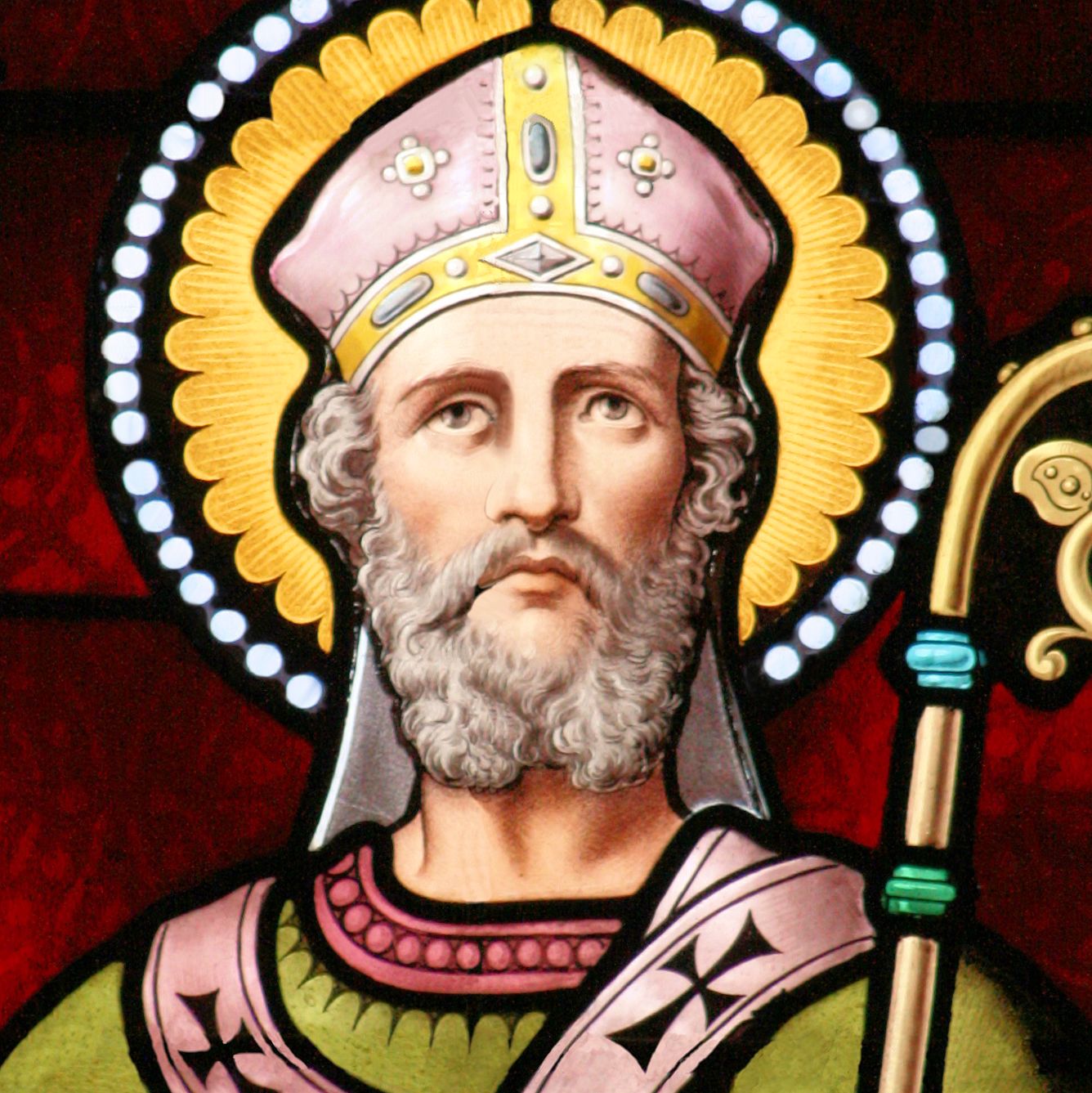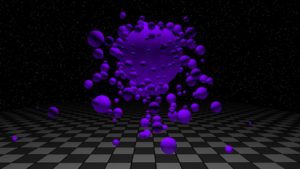There are many arguments for God’s existence. Some of them are good (e.g The Fine-Tuning Argument), and some of them are very, very bad (e.g Ray Comfort’s Banana-Hand argument). Some arguments are good, but are very abstract and somewhat difficult to understand at first. The Ontological Argument is one of these. I find the Ontological Argument to be a good argument, but it’s the last argument I’d use when talking to the average person about reasons to believe that God exists given its extremely abstract nature. I’m more apt to pull out a cosmological or teleological argument instead because these are more easily grasped by a person who hasn’t studied much philosophy.
First, let’s define our terms.
Before I state the premises in the argument, I need to first explain terminology in this argument even means for those who aren’t familiar with either this argument or these philosophical terms. This argument seeks to show that the mere possibility of God’s existence entails that God must exist. It is an argument for a “Greatest Conceivable Being” or a “Maximally Great Being”. A Maximally Great Being is a Being that would have certain properties that go to make a person a great person, and it would have all of these properties to an infinite extent. How could a man achieve greatness? Could a man be both great, and terrible? Hitler was great in sovereignty and power, But he was a moral monster. Hitler was evil. He was great in sovereignty and power, but was lacking in moral goodness. Similarly, Mother Teresa was great in moral goodness and her love for her fellow human being but she did not have the power and sovereignty of Hitler. A philosopher can be great for his wisdom, but might not have the power of a King/Dictator/Ruler and might possibly be even be morally flawed. A Maximally Great Being (MGB) would have Power, sovereignty, love and moral goodness, and wisdom, and would have these qualities to the greatest extent possible. A being that has maximal greatness, must be completely great in all of these areas, that is to say, to be a MGB, it must be omnipotent (all-powerful), omniscience (all-knowing), omnipresent (everywhere), morally perfect, and all-loving. An MGB but also be necessary in it’s existence, since I think it’s clear that it is better to be logically necessary in one’s existence than to be contingent on some other thing for one’s existence. I’ll explain the difference between necessity and contingency later in this post.
It also uses the term “possible worlds”. Now, what do I mean by possible worlds? A possible world is a description of the way the world might be or might have been. Perhaps the best way to think of a possible world is as a huge conjunction p & q & r & s . . . , whose individual conjuncts are the propositions p, q, r, s, . . . . A possible world is a conjunction that comprises every proposition or its contradictory, so that it yields a complete description of reality—nothing is left out of such a description. By negating different conjuncts in a complete description we arrive at different possible worlds:
World 1: p & q & r & s . . .
World 2: p & not-q & r & not-s . . .
World 3: not-p & not-q & r & s . . .
World 4: p & q & not-r & s . . .
Only one of these descriptions will be composed entirely of true propositions and so will be the way reality actually is, that is to say, the actual world.
Now, On To The Argument
Now that I’ve explained the terminology of this argument, what are the premises in The Ontological Argument? The premises are:
1: It is possible that a maximally great being exists.
2: If it is possible that a maximally great being exists, then a maximally great being exists in some possible world.
3: If a maximally great being exists in some possible world, then it exists in every possible world.
4: If a maximally great being exists in every possible world, then it exists in the actual world.
5: If a maximally great being exists in the actual world, then a maximally great being exists.
6: Therefore, a maximally great being exists.
This is a logically valid argument. The conclusion follows from the premises by the laws of logic. All that’s needed to establish the truth of the conclusion is to establish the truth of the premises. So, are the premises true or are they false?
Defense Of The Premises
It seems obvious that the first premise of the argument is true. It seems entirely possible that God (or a Maximally Great Being) exists. Now, don’t get thrown off by terminology. When I say “It’s possible that God/MGB exists”, I do not mean it in the sense of epistemic uncertainty. I don’t mean like a weak agnostic who says “Well, it’s possible that God exists. It’s also possible that He doesn’t exist”. When I say that it’s possible that a MGB exists, I don’t mean He exists “for all we know”. Rather, when I say that God/MGB exists, I mean that the existence of a Being like the one I described above is metaphysically possible. That is to say, He could exist. His existence isn’t an incoherent concept.
For example, a square circle is not metaphysically possible. It’s an incoherent concept and so the statement “It’s possible that square circle exists” is false. It isn’t even the case that such a thing could even exist, much less actually does exist. A Married unmarried man is also something that isn’t possible. The statement “It’s possible that a married unmarried man exists” is false. It isn’t even the case that such a thing could even exist, much less actually does exist. There are other things that cannot exist, such as a one ended stick. Asking whether a things like these actually do exist is absurd because their existence isn’t even possible much less actual.
So the assertion of the first premise of this argument is that a Maximally Great Being could exist in reality, given that there’s nothing incoherent about the concept (quite unlike the concepts of square circles and married bachelors). The idea of a maximally great being is intuitively a coherent idea, and so it seems plausible that such a being could exist. In order to refute this premise of the argument, the atheist has to show that the concept of God is logically incoherent…just like a square circle. However, I see nothing incoherent about the idea of a Necessary, uncaused, omnipotent, omniscience, omnipresent, omnibenevolent, morally perfect Being.
What about Premise 2?
Premise 2 is indisputable. For if something’s existence is possible, it’s obvious that it exists in some possible world. If X doesn’t exist in any possible world, it’s because the mere concept of X is logically impossible, like the square circles and one ended sticks listed above. The existence of these is impossible, and so, there’s no possible world at all in which you’ll find something like this. However, if the existence of something is logically or metaphysically possible, then it follows that there is a possible world in which this thing exists (regardless of whether it exists in the actual world).
What about Premise 3?
Premise 3 says that “If a Maximally Great Being exists in some possible world, it exists in every possible world”. This premise is the one I used to take issue with. For the longest time, I did not find this particular argument for God’s existence to be a good one because I just saw no reason why if a Maximally Great Being exists in some possible world, it must exist in every possible world. I just didn’t know why one should think this premise is true. Why couldn’t an MGB exist in some worlds but not others?
I now realize, however, that this premise is true because of how we define “A Maximally Great Being”. You see, a Maximally Great Being has necessity as one of its properties. Now, what do I mean by “necessity”? The difference between contingency and necessity is that one could fail to exist and/or depends on the existence of something else to bring it into existence and something that’s necessary in its existence cannot possibly fail to exist and also depends on nothing else in order to exist. Many mathematicians think that numbers, sets, and other mathematical entities exist in this way.
For example? What does 2 + 2 equal? 2 + 2 = 4. Now, mathematicians will tell you that if a mathematical equation like 2 + 2 = 4, it necessarily equals 4. If it did not equal 4, then it would necessarily not equal 4. The conclusions of mathematical equations are either true or false. If it’s true, it has to be true. If it’s false, it has to be false. 2 + 2 = 4 neccesarilly. It has to equal 4. It’s impossible for it not to equal 4.
Moreover, since 2 + 2 = 4 and cannot possibly equal anything else (it necessarily equals 4), it therefore equals 4 in every single possible world. There is no possible world where 2 + 2 = 9,000,000,000 or 17. There is no possible world in which 2 +2 equals 17, because mathematical truths are necessary truths.
Now, a maximally great being has necessity as part of His nature. IF He exists, He exists necessarily. If this Being we’re talking about could fail to exist, then he would not be maximally great. I think it’s obviously better to be necessary in one’s existence than not.
A maximally great being is one that has, among other properties, necessary existence. So if it exists in one world, it exists in all of them (just as 2 +2 = 4 in all possible worlds)! In that sense, such a being is different than contingent beings, which exist in only some possible worlds. An ogre, for example, exists in some possible world, but not in all of them, for its existence is possible but not necessary.
What about Premise 4?
Premise 4 states “If a Maximally Great Being exists every possible world, then it exists in the actual world”? This is true because of the truth of the third premise which we’ve just looked at. If a Maximally Great Being exists in every possible world, it must exist in the actual world….because the actual world is a possible world. We know the actually existing world we live in is a world that is possible. If it was an impossible world (like a world that has a square circle in it), then this world would not and could not exist.
The actual world is a possible world. It’s the one world out of the many that’s been actualized.
Now, we’ve looked at the 4 premises of the Ontological Argument. Given the truth of the 4 premises, the conclusion logically and necessarily follows. There does exist a Being in the actual world that is necessary in its existence, is uncaused, is morally perfect, infinitely loving, infinitely powerful, everywhere present, infinitely wise, and infinitely knowledgeable.
Objection: Parody Arguments Render This Argument Absurd
Many atheists cannot refute the premises of this argument. They cannot demonstrate the falsity of any of the premises. Rather, they intend on taking the logic of the argument to show that if this argument were considered to be a sound argument, then it would entail the existence of many other things that we know don’t really exist. Examples would be of a maximally great island, or a maximally great pink unicorn, or a maximally great lion. This argument tactic is known as reductio ad absurdum.
Victor Stenger, in his debate with William Lane Craig, appealed to the existence of a maximally great pizza. As a pizza lover, I would love for this argument to be sound! Unfortunately, it isn’t. For example, what properties belong to a pizza. A pizza must be able to be eaten. If it can’t be eaten, it lacks one of the essential properties that makes a pizza, a pizza.1 Why can’t you eat the maximally great pizza? Because maximal greatness involves necessary existence as I’ve argued when I gave my defense of premise 3. Necessary existence entails that it cannot fail to exist. If you eat the pizza, it no longer exists. It turns into poop at some point after eating it. Therefore, it isn’t maximally great. Moreover, a pizza cannot “know” anything. Maximal greatness entails omniscience. A pizza cannot “know” anything. Moreover, Maximal greatness entails being everywhere present. Is this Pizza that Stenger was talking about infinitely tall and infinitely wide or something?
William Lane Craig writes “The properties that go to make up maximal greatness have intrinsic maximal values. Things like being all-knowing means knowing all truth. There is a kind of maximum quality there that you can’t get beyond – you know all truth. Being omnipotent is being able to do anything that is logically possible. Or being all-good. These have intrinsic maximal values. By contrast, something like a most perfect island or a maximally great island doesn’t seem to have those kind of intrinsic great-making properties. In the case of islands, for example, there could always be more palm trees and more hula girls to increase the greatness of the island. It is not even obvious what the intrinsic properties of a greatest possible island would be. That seems relative to your interests. You can think a great island is a remote desert island where you can be by yourself or is one that is bursting with fine resort hotels and all sorts of entertainment. It is relative to the interests of the vacationer. The idea of a greatest island or a most perfect island really turns out not to be a coherent idea. There aren’t intrinsic maximal values or even objective properties that go to make up the excellence of islands.”2
Moreover, I would add (to what Craig wrote) that the definition of an island also entails being a small patch of land surrounded by water. But if this island has omnipresence, it would be infinitely long and infinitely wide. Therefore, it would cease to be an island and instead be just a never ending continent.
William Lane Craig writes “The idea of a necessarily existent lion, as well, is also incoherent. Just think about it. In order to be such an animal, this beast would have to exist in every logically possible world. But that would mean that in a world in which the universe consisted of nothing but a singularity, just a point of infinite spacetime density, pressure, curvature, that there would be this necessarily existent lion. Anything that could exist in a universe which consisted of a simple singularity just isn’t what we mean by a lion. A lion is a sort of big cat having certain properties, and it couldn’t exist in a universe like that. So, clearly, a lion is subject to certain sorts of physical limitations in order to be a lion and therefore cannot be coherently conceived to be necessarily existent.”3
If we attribute all great-making qualities to a pizza, or an island or a lion, we strip these things of what makes them what they are. If we attribute great making qualities to these things to the greatest extent possible, We end up with a picture that looks more like God than a pizza or an island.
NOTES
1: What I mean here is that a pizza, like all things, have certain properties that it must have in order to be what it is. If it lacked at least one of those properties, it would no longer be that thing, but instead be a different thing. In philosophy, an “essential property” is understood to be a property that something must have in order to be what it is. An “accidental property” by contrast, is something that it just happens to have, but does not require that property in order to be considered what it is. In other words, if X has properties 1, 2, and 3, and let’s say that properties 1, 2, and 3, are properties that X must have in order to be called an X, it is impossible for X to not have properties 1, 2, and 3. If X lacked properties 1, 2, and 3, then it would not be X. On the other hand, there are properties that X has but that it doesn’t require to have in order to be X. For example, let’s say that properties 4, 5, and 6, are properties that a particular X has, but doesn’t have to have in order to be considered an X. X could lack 4, 5, and 6 and still be called an X. But X has to have properties 1, 2, and 3 in order to be called an X.
To use a non-abstract example, an automobile has certain essential properties and certain accidental properties. The essential properties would be things like wheels, an engine, and a gas tank. These are properties that any automobile has to have in order to be an automobile. If it lacked any of these properties, it would not be an automobile. By contrast, an automobile may have seat belts and be painted blue, but a car doesn’t require seat belts and have to be the color blue in order to be considered a car. The very first cars ever invented didn’t have seat belts, and cars come in a variety of colors. So, if an automobile has these things, these are properties it has, but they’re not essential properties. These are accidental properties. That is to say, they are properties that it just happens to have. In the case of a maximally great pizza, this is impossible since maximal greatness requires necessary existence. If it exists necessarily, it cannot be eaten since if it was eaten then it would cease to exist which is impossible, by definition, for a necessarily existing object to do.
2: Existence of God (part 24), Transcript of William Lane Craig’s Defenders 2 class/ Excursus: Natural Theology/ § V. Ontological Argument/ Lecture 2 –> http://www.reasonablefaith.org/defenders-2-podcast/transcript/s4-24#ixzz3mz2CB2d5 transcription by John Mazzitelli
3: ibid.
Share this:
- Share on Facebook (Opens in new window) Facebook
- Share on X (Opens in new window) X
- Print (Opens in new window) Print
- Email a link to a friend (Opens in new window) Email
- Share on Pinterest (Opens in new window) Pinterest
- Share on Reddit (Opens in new window) Reddit
- Share on LinkedIn (Opens in new window) LinkedIn
- Share on Tumblr (Opens in new window) Tumblr
Discover more from Cerebral Faith
Subscribe to get the latest posts sent to your email.




